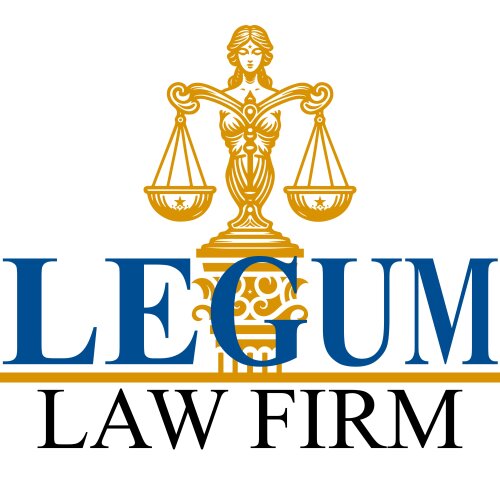Best Communications & Media Law Lawyers in Karachi
Share your needs with us, get contacted by law firms.
Free. Takes 2 min.
List of the best lawyers in Karachi, Pakistan
About Communications & Media Law in Karachi, Pakistan:
Communications & Media Law in Karachi, Pakistan refers to the legal framework that governs various aspects of media and communication activities in the city. It encompasses laws and regulations that ensure the protection of freedom of speech, access to information, and the responsible dissemination of news and content through different mediums.
Why You May Need a Lawyer:
There are several situations where you may require legal help in Communications & Media Law in Karachi, Pakistan. Some common examples include:
- Defamation cases: If someone publishes false and harmful information about you or your organization, you might need a lawyer to help defend your reputation.
- Content licensing: If you plan to use copyrighted material, such as music or images, in your media projects, a lawyer can assist you in obtaining the necessary licenses.
- Censorship or content regulation issues: If your content is being censored or regulated by governmental authorities, a lawyer can help protect your rights and ensure freedom of expression.
- Privacy concerns: If your privacy has been violated, for example, through unauthorized publication of your personal information, a lawyer can assist you in seeking legal remedies.
- Media business formation: When starting a media-related business, a lawyer can guide you through the legal requirements, such as company registration and compliance with applicable regulations.
Local Laws Overview:
Communications & Media Law in Karachi, Pakistan is governed by multiple laws and regulations. Here are some key aspects:
- Constitutional right to freedom of speech: The Constitution of Pakistan guarantees the fundamental right to freedom of speech and expression, subject to reasonable restrictions imposed by law.
- Pakistan Electronic Media Regulatory Authority (PEMRA) Act: PEMRA is the regulatory body responsible for all electronic media in Pakistan. It grants licenses, enforces content regulations, and addresses complaints related to electronic media.
- Defamation laws: Pakistani law recognizes both civil and criminal defamation. It is important to understand the elements and legal defenses related to defamation if you are involved in media or communications.
- Copyright and intellectual property laws: Protection of copyrighted material, such as music, films, and articles, is governed by the Copyright Ordinance 1962. It is advisable to seek legal assistance to understand and protect your intellectual property rights.
- Privacy laws: Pakistan does not have comprehensive privacy legislation, but certain legal provisions protect an individual's right to privacy. These provisions may apply to media and communication activities.
Frequently Asked Questions:
Q1: Can the government censor my online content?
A1: The government can restrict online content based on certain grounds, such as national security or obscenity. However, any restriction must be justified and proportionate under the law.
Q2: Are journalists protected by law in Pakistan?
A2: Yes, journalists have legal protections to pursue their profession and report on matters of public interest. However, they must also adhere to professional ethics and standards while exercising their freedom of expression.
Q3: Can I sue someone for defamation if they spread false information about me online?
A3: Yes, you can file a defamation lawsuit if someone publishes false and damaging information about you. Consult with a lawyer to understand the legal requirements and potential remedies available to you.
Q4: How can I protect my copyrighted content in Pakistan?
A4: In Pakistan, your content is automatically protected under copyright law upon creation. However, it is recommended to include copyright notices and take additional steps, such as registering your work and seeking legal advice, to enhance protection and enforce your rights if needed.
Q5: What should I do if my privacy is violated by media or individuals?
A5: If your privacy is breached, you can consult with a lawyer to explore legal options such as filing a complaint, seeking damages, or obtaining an injunction to prevent further violations.
Additional Resources:
Here are some resources and organizations related to Communications & Media Law in Karachi, Pakistan that can provide further assistance:
- Pakistan Press Council: Official website of the Press Council, which addresses grievances against print and electronic media.
- Media Legal Defence Initiative: A non-profit organization providing legal support to journalists and media organizations in challenging environments.
- Legal Aid Organizations: Various legal aid organizations, such as the Karachi Bar Association, offer legal advice and assistance to individuals who cannot afford private legal representation.
Next Steps:
If you require legal assistance in Communications & Media Law in Karachi, Pakistan, consider following these steps:
- Identify your specific legal issue within the domain of Communications & Media Law.
- Research and shortlist lawyers or law firms specializing in Communications & Media Law in Karachi, Pakistan.
- Contact the identified lawyers or firms and schedule initial consultations to discuss your case.
- During the consultation, explain your situation, ask relevant questions, and clarify the lawyer's fees and terms of engagement.
- Select a lawyer you feel comfortable working with and who has the necessary expertise to handle your case.
- Follow your lawyer's guidance, provide any required documentation or information, and actively participate in the legal process.
- Maintain regular communication with your lawyer and keep them updated on any developments related to your case.
Lawzana helps you find the best lawyers and law firms in Karachi through a curated and pre-screened list of qualified legal professionals. Our platform offers rankings and detailed profiles of attorneys and law firms, allowing you to compare based on practice areas, including Communications & Media Law, experience, and client feedback.
Each profile includes a description of the firm's areas of practice, client reviews, team members and partners, year of establishment, spoken languages, office locations, contact information, social media presence, and any published articles or resources. Most firms on our platform speak English and are experienced in both local and international legal matters.
Get a quote from top-rated law firms in Karachi, Pakistan — quickly, securely, and without unnecessary hassle.
Disclaimer:
The information provided on this page is for general informational purposes only and does not constitute legal advice. While we strive to ensure the accuracy and relevance of the content, legal information may change over time, and interpretations of the law can vary. You should always consult with a qualified legal professional for advice specific to your situation.
We disclaim all liability for actions taken or not taken based on the content of this page. If you believe any information is incorrect or outdated, please contact us, and we will review and update it where appropriate.














